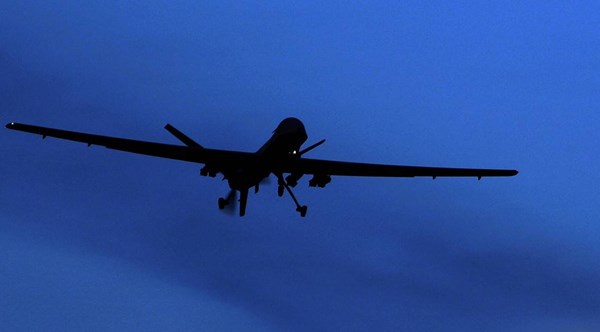Russian journalist acknowledges defeat in drone warfare tactics against Ukraine
Russians are admitting defeat to Ukraine in the war of drones, with a tactical error that has seen them lag behind in the increasingly critical technology. The admission came from Russian journalist and Moscow City Duma Deputy Andrey Medvedev.
According to Medvedev, writing on Telegram, "The enemy [Ukraine] is extremely saturated with drones, remains highly flexible in their approach, continuously improving electronic warfare capabilities, and enhancing both the drones and transmitters. The Ukrainian forces are supported by various teams, enthusiasts, volunteers, all of whom are highly motivated to achieve results."
In contrast, Russia appears to have put all its eggs in one basket. "Here we have chosen a single drone model which seemed successful and started cloning it on an industrial scale. If a manufacturer keeps producing the same model without making adjustments, ignoring that the conditions of drone warfare are changing nearly every month, without considering that the enemy's electronic warfare can quickly adapt to jam the drones on a specific frequency, problems are inevitable," explained Medvedev.
He cited the frustrations expressed by a commander in the Russian forces, who said that the Russian drones operated on a single frequency, "which the 'hokhols’ (derogatory for Ukrainians) have learnt to perfectly jam.'" This meant, he added, that "out of 10, only two drones reach their target."
The calculus is disheartening for the Russians. "We may have approximately the same number of drones as the Ukrainians, but unfortunately, they are outclassing us in quality," Medvedev said.
The journalist further underscored the successful tactics of Ukrainian troops, currently beyond the reach of Russians. "They use half a dozen different types of drones, all operating on different frequencies. They adapt to the direction of operations. To put it bluntly, if we start to jam them, they switch to a different type of drone with a different frequency in a matter of days."
Medvedev warned that unless Russia adapts, industrial drones will eventually become entirely ineffective. Manufacturers' engineers should be working continually to receive feedback from combatants on the front lines, tweaking parameters and characteristics, and improving models—something the enemy [Ukraine] is already doing.
He highlighted a grim scenario for the Russian army, especially given the inflexibility of local drone developers. "The decision by some NATO countries to establish domestic production of kamikaze drones, instead of costly tanks and armored vehicles, could dramatically alter the balance of power at the front. Just imagine if NATO starts supplying a hundred thousand drones monthly to the Ukrainian forces. What then?"
The thoughts echoed those of Dmitry Rogozin, the former head of the Russian space agency Roscosmos, who once cited the abundance of domestic FPV drones as paramount to success in unmanned warfare—drones as mass consumable material.
